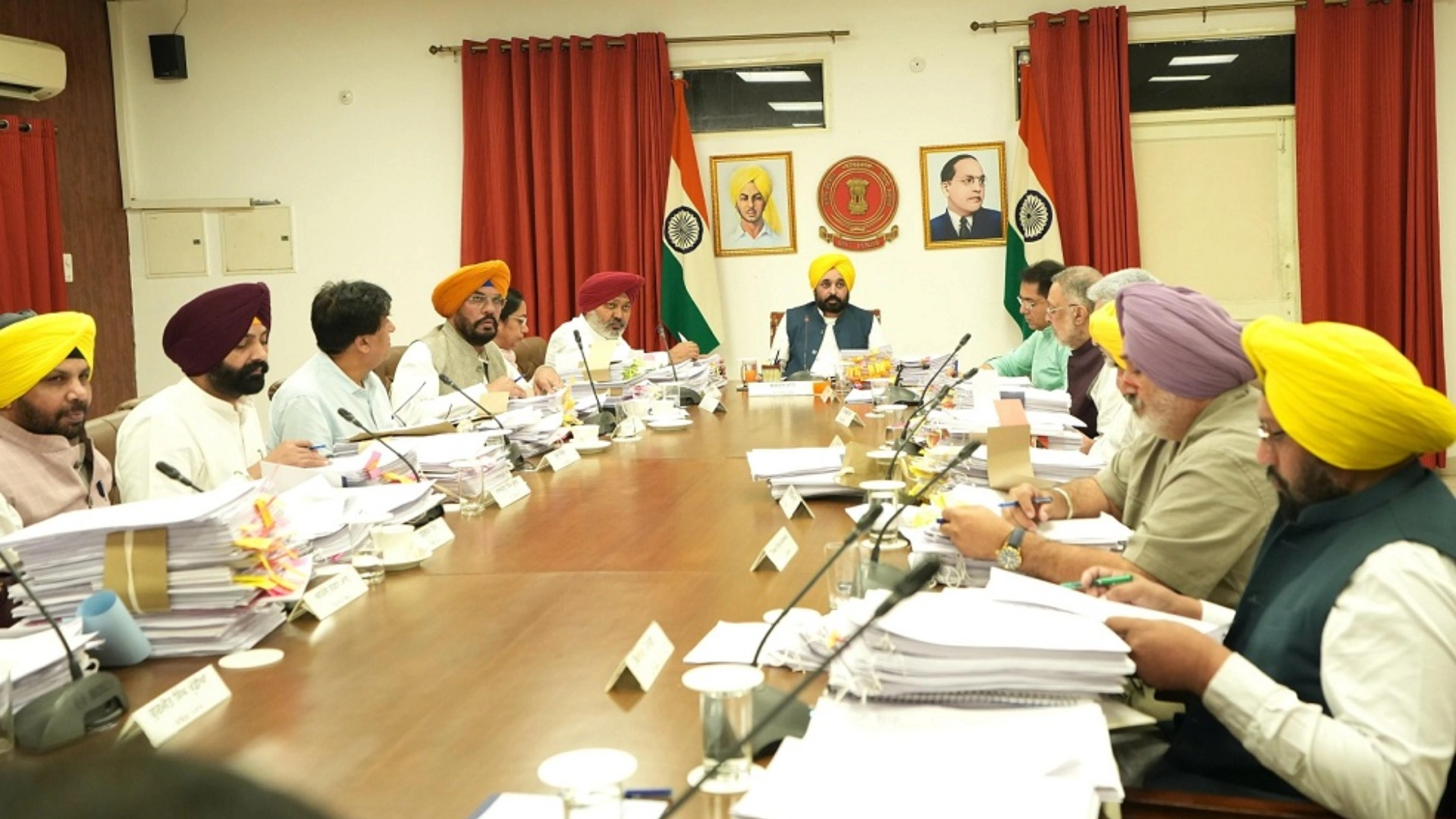| ➡️ Get instant news updates on Whatsapp. Click here to join our Whatsapp Group. |
The Punjab Cabinet, led by Chief Minister Bhagwant Mann, has approved the disbursal of ₹14,000 crore in pending arrears for government employees and pensioners. This decision was made during a meeting of the Council of Ministers on Thursday, bringing financial relief to lakhs of beneficiaries across the state.
Relief for Government Employees and Pensioners
According to an official statement, the arrears include revised pay, pensions, and leave encashment for the period from January 1, 2016, to June 30, 2022. Additionally, dearness allowance (DA) for employees and pensioners from July 1, 2021, to March 31, 2024, will also be disbursed. The funds will be released in phases, benefiting around three lakh government employees and three lakh pensioners.
Affordable Housing for the Economically Weaker Section (EWS)
The Cabinet approved a policy to optimally use land reserved for the Economically Weaker Sections (EWS). Under this initiative, scattered land parcels in various colonies will be monetized, and the revenue generated will be used for EWS welfare programs. A total of 1,500 acres of land will be acquired across Punjab to implement this housing scheme. The state development authorities will plan and auction these land parcels to generate reasonable revenue while ensuring housing for the economically weaker section.
Boost to Legal Services and Taxation Department
To enhance the legal framework, the Punjab Cabinet approved the creation of new posts in the Punjab State Legal Services Authority to establish 22 new Lok Adalats across the state. Additionally, 476 new posts will be created in the taxation department to prevent tax pilferage and ensure efficient resource utilization. The designation of inspectors in the taxation department will also be changed to State Taxation Officers to align with their responsibilities.
Recruitment of 2,000 Physical Training Instructors (PTI Teachers)
The government has amended rules and qualifications for the direct recruitment of Physical Training Instructors (PTI teachers) in elementary schools. This move will pave the way for the hiring of 2,000 PTI teachers in the coming months, strengthening the education sector.
Industrial Growth and Job Creation
The Cabinet approved waiving stamp duty, registration fees, and additional charges for transferring land to the NICDC Punjab Industrial Corridor Development Corporation Limited. This land will be used for an Integrated Manufacturing Cluster (IMC) as part of the Amritsar-Kolkata Industrial Corridor (AKIC) Project. The project is expected to generate over 50,000 jobs, with around 32,724 jobs from industrial activities and 14,880 jobs from non-industrial support services.
Fast-Track NRI Courts for Justice
To facilitate Non-Resident Indians (NRIs) in legal matters, the Cabinet has approved the setting up of special fast-track NRI courts in six districts—Jalandhar, Hoshiarpur, Kapurthala, Shaheed Bhagat Singh Nagar, Moga, and Ludhiana. These courts will help NRIs resolve their legal issues efficiently.
Redevelopment of Bathinda Thermal Plant Land
The Punjab Cabinet has decided to repurpose 253 acres of land from the Bathinda thermal power plant for residential and commercial development, a water treatment plant, a bus stand, and an ESI hospital. Additionally, 1,235 acres will be returned to the power utility. The Bathinda Development Authority will oversee the management of three lakes covering 173 acres within the thermal plant area.
Promoting Renewable Energy in Agriculture
To support farmers and promote green energy, the Punjab government has launched a pilot project to install 200 solar pumps for agricultural purposes. The state government will cover 90% of the project cost, aiming to reduce reliance on conventional power sources and supplement farmers’ income.
Tackling Pollution in Buddha Nullah, Ludhiana
In a move to curb pollution from cow dung in Buddha Nullah, Ludhiana, the government has approved the setting up of an ultra-modern bio-methanation plant. This initiative will help address environmental concerns in the industrial city and promote sustainable waste management.
With these crucial decisions, the Punjab government aims to provide financial relief, boost employment, enhance legal services, and promote economic and environmental sustainability in the state.
